Realizing Children’s Rights in the Ivory Coast
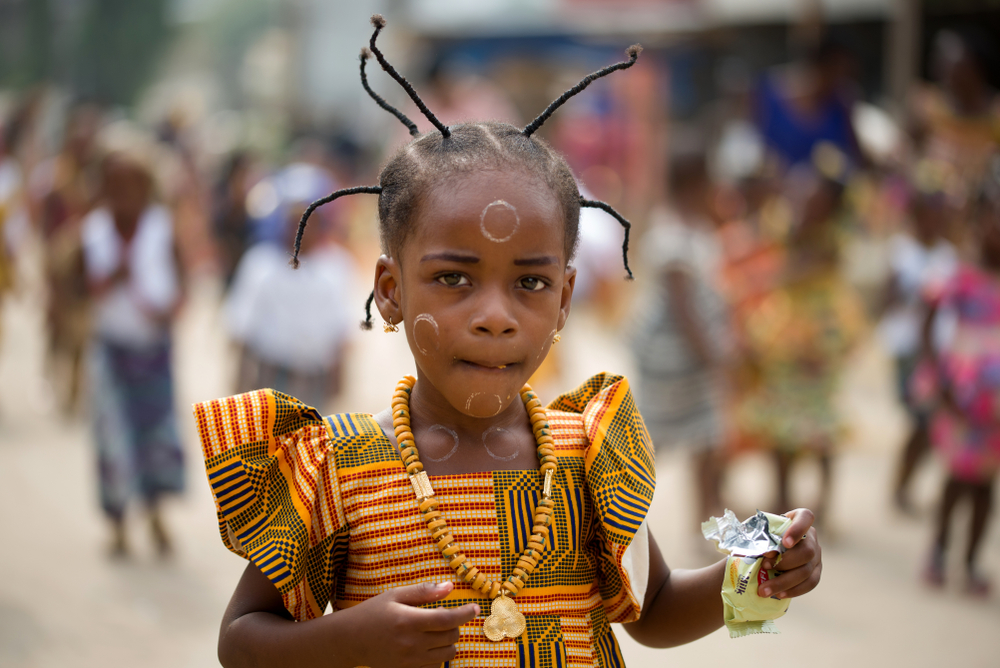
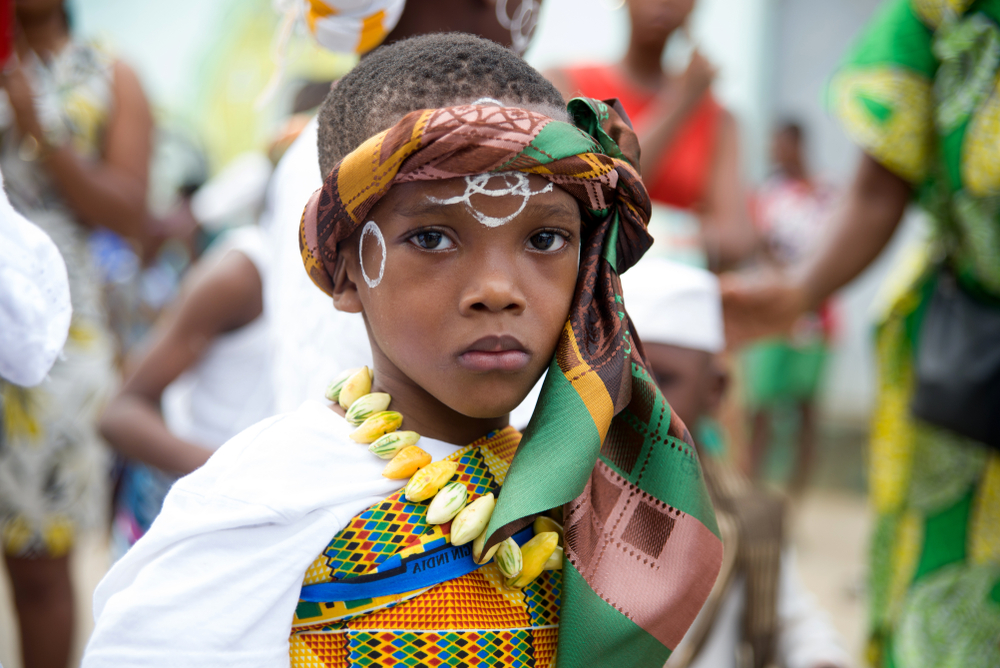
Although its population is very young, Ivory Coast still has a long way to go in order to guarantee the full realization of children’s rights. The children of Ivory Coast face many challenges, such as child marriage, poverty, child violence, no birth registration, lack of access to drinking water, no proper healthcare, etc.

Children’s Rights Index: 5,48/10
Black level : Very serious situation
Population: 25.1 million
Pop. ages 0-14: 42 %
Life expectancy: 50,7 years
Under-5 mortality rate: 67 ‰
Ivory Coast at a Glance
Located in the western part of the African continent and in the intertropical zone, Cote d’Ivoire has a surface area of 322.462 km2. This country is bordered to the south by Atlantic Ocean, to the east by Ghana, to the north by Burkina Faso and Mali, to the west by Liberia. Ivory Coast’s political capital is Yamoussoukro, whist its economic capital is Abidjan. The country’s population is about 25.1 million, with approximately 42% being between the ages of 0 to 14 years.
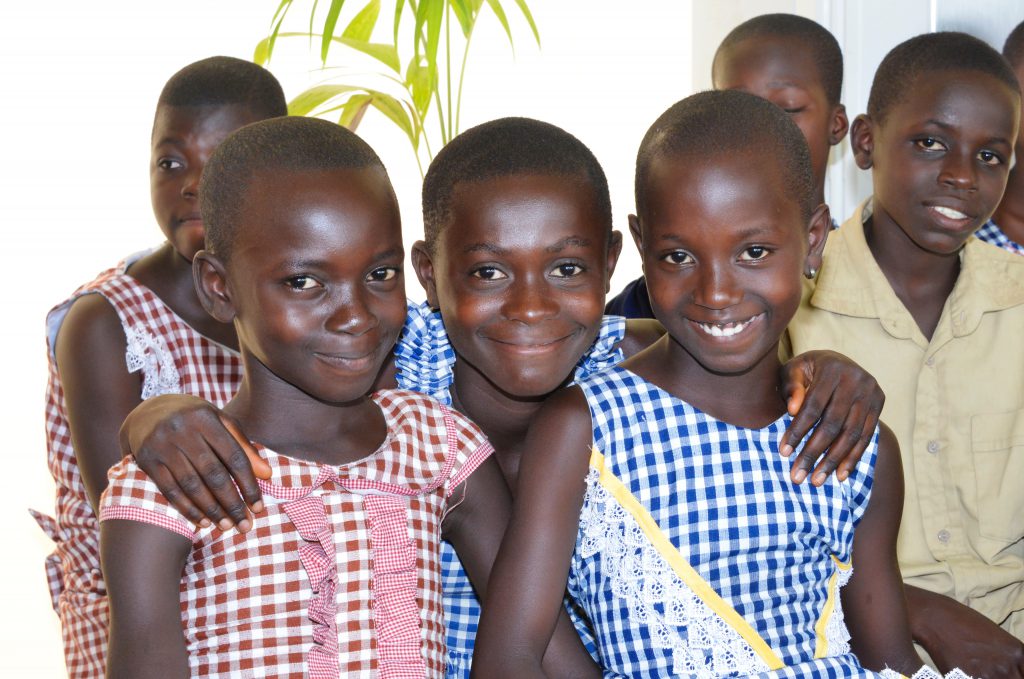
The political and social landscape of Ivory Coast has often been disrupted by political tensions. Indeed, after the death of President Felix Houphouet Boigny in 1993, and the entry in power of Henry Konan Bédié, this country went through a chaotic period marked by the division between the north and the south of the country. As a result of this situation, the Ouagadougou agreements provided some stability. However, tensions brought by the 2010’s election has created another conflict giving rise to the post-election crisis which lasted for about 5 months. Cote d’Ivoire has also been confronted by pockets of instability such as the terrorist attack of Grand Bassam in March 2016.
Indeed, since around 2015: in the North and east of the country, violence and attacks from jihadists at the border of Ghana, Mali and Burkina Faso are becoming threatening to the population.
Since then, the country has experienced a period of relative stability. However, this stability is threatened by the upcoming presidential elections of 2020 which is very important for peace and political stability in this country. Given this political instability, Cote d’Ivoire is confronted by many obstacles in child rights application. Often resulting, in challenges implementing children’s rights and eradicating poverty, infant mortality, and child labour.
Status of children’s rights
Ivorian population is young. Again, the country counts about 42% of people aged from 0 to 14 years. This very young population is faced with a high level of poverty; about 59% according to the last study realized by the Oxford Poverty and Human Development Initiative (OPHI). This, despite the efforts of the State in order to improve children’s situations. Ivory Coast still has a long way to go in order to guarantee a framework conducive to the full realization of children’s rights.
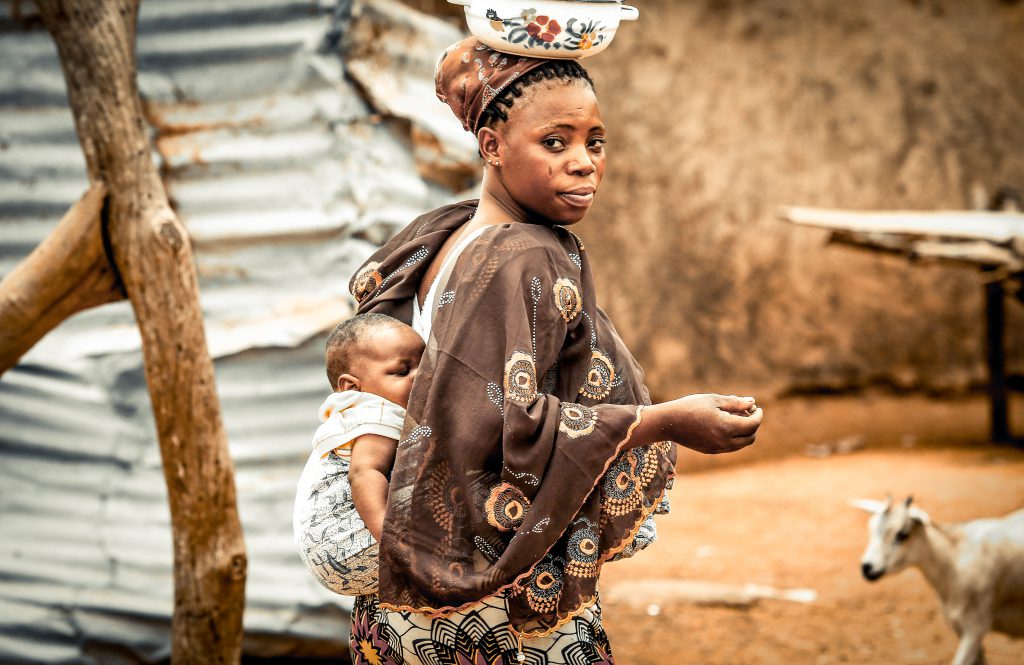
The children of Ivory Coast face many challenges, 25% of Ivorian children are not registered after birth civil status and therefore cannot enjoy a certain number of rights and privileges. 37% of women who are married have been married before 18 years, one in five families does not have access to safe drinking water without forgetting the phenomenon of child truants also called “microbes” who are great factor of insecurity in the country.
The “microbes” refers to gangs of children and young adolescents who appeared in the years 2010-2011 during the post-election crisis, most of them come from a poor neighbourhood called Abobo. They most of the time do not go to school, and do not have proper food, healthcare, and other basic rights. They are discriminated against most of the time. No excusing such behaviours, this helps explain, and show how better children’s rights implementation would limit such behaviour.
They multiply the aggressions of a rare violence in the Ivorian economic capital, most of the time: car hijackings at traffic lights at night time: they attack and rob with weapons (mostly knives, machetes and such; sometimes guns). It can also be during the day. Thus most people are frightened to go out or get home late, or do not stop at traffic lights to avoid them. Even those with centralise locks feel scared. Children hold a high potential. That’s why there is an urgent need to think about their rights.
Child sensitive social protection
Social protection is essential for preventing and reducing poverty for children and families, for addressing inequalities, and for realizing children’s rights. In addition, it is essential that social protection programmes respond to children’s vulnerabilities by optimizing positive effects for children and minimizing potential consequences. Child-sensitive social protection addresses chronic poverty, social exclusion, and external shocks which do affect children, of course. This is especially important for families in Ivory Coast which are relatively poor (Ivory Coast is ranked 170st out of 189 countries in the Human development index in 2018!). They are, in spite of themselves, vulnerable to the social risks and other difficulties that arise in daily life.
Families in Ivory Coats are thus exposed to political risk as a result of the recent post-electoral crisis, as well as economics risks including the increase in food prices and energy deficit. In addition, poor families are exposed to the risk of natural disasters such as heavy rains that cause floods and collapses of houses. Health risks and social risks such as difficulties in accessing care, violence and abuse are other challenges that affect these families. Faced with the severity of these problems, social protection is particularly important for children with regards to their big vulnerability.
The State of Côte d’Ivoire has since 2012, established a national plan and a national policy for the protection of children. This policy is based on two documents. The first is the national action plan 2012-2014 which establish a national strategy to fight against child abuse and the worst form of child labour. The second document is the national policy 2014-2018 for child protection. This document is intended to protect children from all vulnerabilities to which they are exposed. In spite of these efforts, child’s rights situation dwells enough weak and needs a better implication from authorities.
Children – addressing their needs
Right to health care
The Ivory Coast overall has made progress on the right to health. However, efforts still need to be made to ensure that every child has access to care. Infant mortality remains high with 108 deaths per 1,000 births, according to the French development agency.
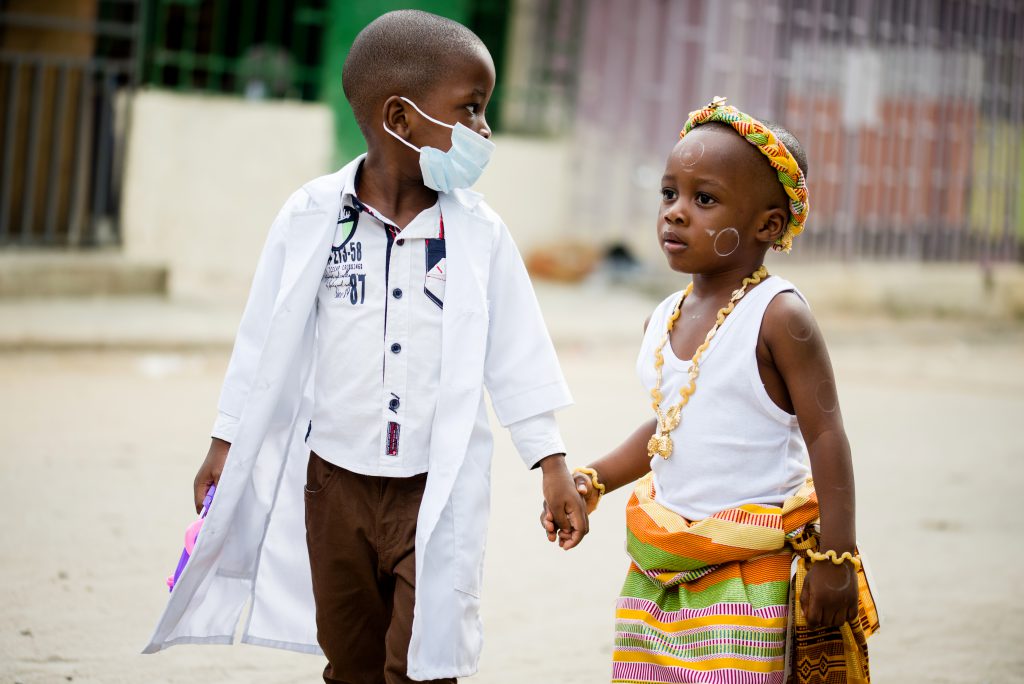
Malaria remains the major cause of death for children under 5 years of age. The incidence of this disease is 286,87 out of 1000. Acute respiratory infections are the second major cause of death in children with a mortality rate of about 187 ‰. AIDS is also a factor that greatly affects the right to health that all children must enjoy. The Cote d’Ivoire is thus the country most affected by HIV/AIDS in West Africa. HIV/AIDS prevalence rate in this country is 2.7%. According to the 2017 UNAIDS report, around 38,000 children aged 0-14 are living with HIV. Approximately 31,000 people lost their lives in 2017 due to HIV/AIDS and nearly 290,000 became orphans.
Health is an inherent part of a child’s well-being and development. Actions in addition to those already taken must be taken to guarantee the right to health and preserve the right to life of these children.
Right to Education
The gross enrolment rate expressed by UNESCO in 2017 is 8.03%. In the provinces, about 420,000 children are out of school. Girls are even more affected by school-leaving, as more than 287,000 girls are out of school.
There are many reasons for girls dropping out of school. The first is early marriage. Girls are often forced to leave their studies in order to become a spouse or housewife. UNICEF found that 58% of girls under 15 living in the west of the country were in union. Many girls are often kept at home by their parents to help them with household chores. In general, parent prefer to finance boy’s studies. They think that it’s more important.
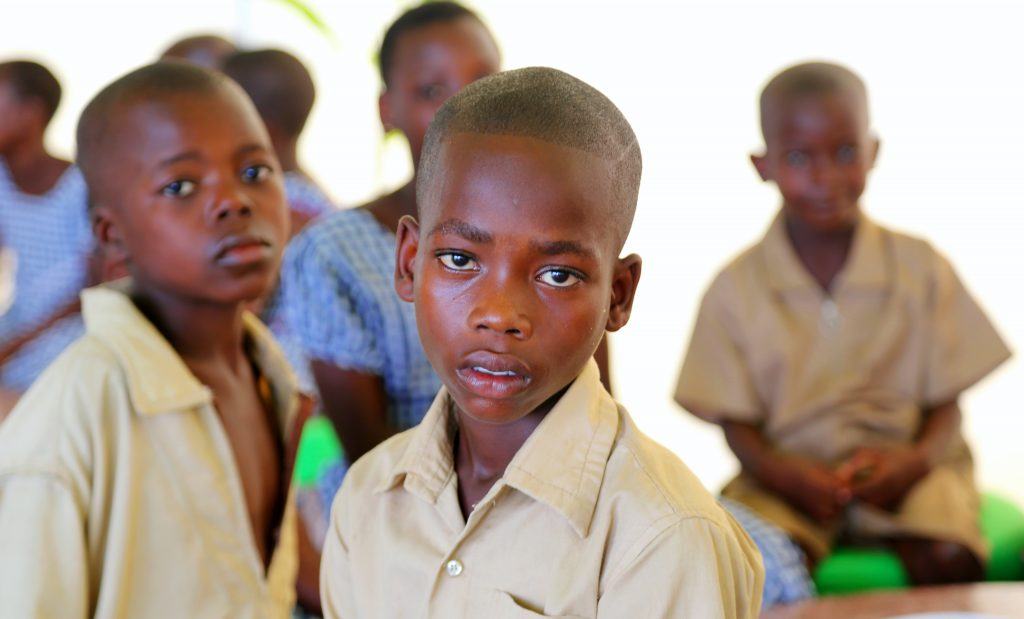
The right to education suffers from a real effectiveness linked to the lack of school facilities or even the lack of qualified teachers. Add to this the numerous strikes undertaken by the teaching staff (educational staff). This was the case with the recent “strike of February 4, 2019”, which put the country at risk of a white year. The right to education is the base of a child’s moral and intellectual development. In this way, the school offers better prospects for these children and preserves them in the long term from intellectual and financial poverty.
Social exclusion of children: the children of the street and the children in conflicts with the law. Both phenomena are major in Ivory Coast and frequent in the city of Abidjan. In both cases, it is about children delivered to themselves not benefiting from any social assistance.
The children of the street are often accompanied children or not, having migrated to the capital to study, or obtain a well-paid job. Some are also children made orphan because of the atrocities committed during the crises that the country knew. Then, they live in relatively difficult conditions. In order to meet their needs, they beg or exercise small lucrative activities such as the cleaning of windows of cars, or still sales of cheap products. These children are not schooled for the greater part and meet their needs with great difficulty.
The second case of exclusions social concern the children in conflicts with the law also called “microbes”. It is about children’s gangs aged about 13 and armed which create a big insecurity in the cities of the country. They are equipped with machetes and with offensive weapons of which they do not hesitate to make use against the population without distinction. They also devote to the drug trafficking and to the Racket (Racketeering) of the collective taxi drivers.
In spite of the efforts of the authorities these children continue to spread terror within the population. To take out these children of their situation of person at a loose end, and to establish measures with the aim of their social integration would be a way to give them a second chance and to end these plague which affects so negatively these children and people around them.
However the population with regard to the sustainability of this oppressive phenomena decides from now on to seek justice for itself, exposing these children to atrocious and often fatal treatments.
Risk factors – Country-specific challenges
Poverty
The World Bank has estimated that 10.7 million Ivorians are suffering from poverty. This makes Cote d’Ivoire the 170th country out of 189 in the 2018 Human Development Index ranking. The rural population is most affected by poverty, with a rate of 56% of poor people living in rural areas.
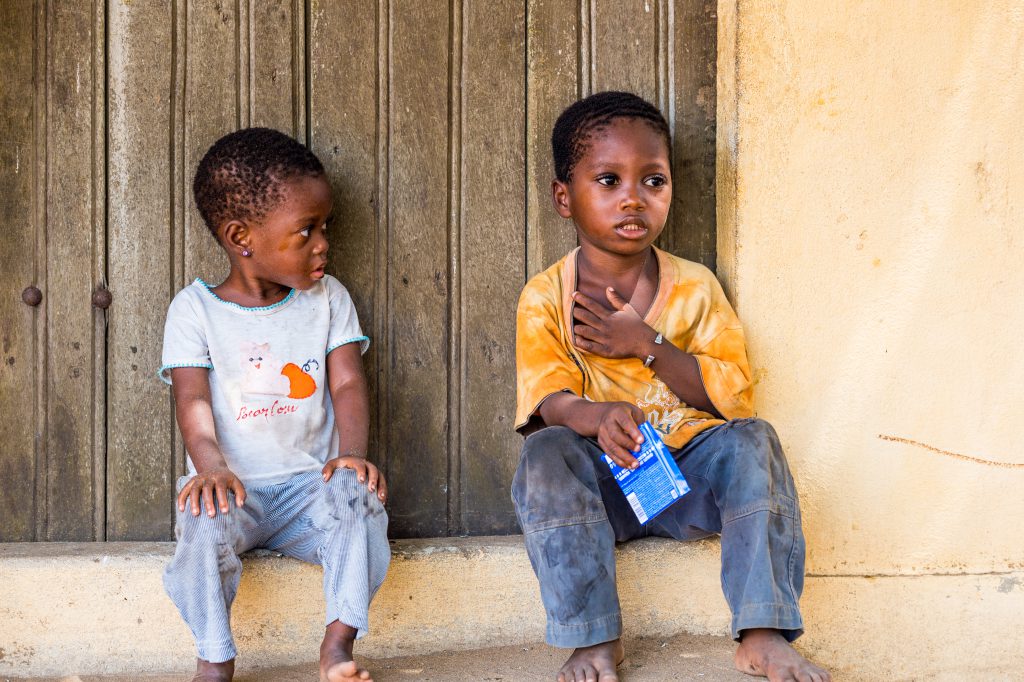
Poverty is the impulsive nerve of many plagues that affect children, namely, child labour, difficulties in accessing health services and decent housing, juvenile delinquency, or the lack of effectiveness of the right to education. Cote d’Ivoire is experiencing strong economic growth with a growth rate of 9.4% between 2012 and 2015. Despite this rate of growth, most of the population remains poor. Better distribution of wealth, electricity and water access for everyone, even in remote areas, school and healthcare facilities in remote areas and improved living conditions are challenges that Cote d’Ivoire must face.
Child labour and exploitation
Seven out of ten children aged 5 to 17 are economically active in Côte d’Ivoire. The agricultural sector alone employs 71% of these children.
These children employed in the fields of cocoa, coffee and others are exposed to long working hours, night work, carrying heavy loads, handling agrochemicals or clearing with sharp tools. The recent abuse of children in cocoa fields has been uncovered. Revealing the fact that 300,000 to a million children are slaves in cocoa fields in Côte d’Ivoire. This discovery has outraged government authorities and the entire chocolate industry, which is now fighting against the exploitation of these children in cocoa fields.
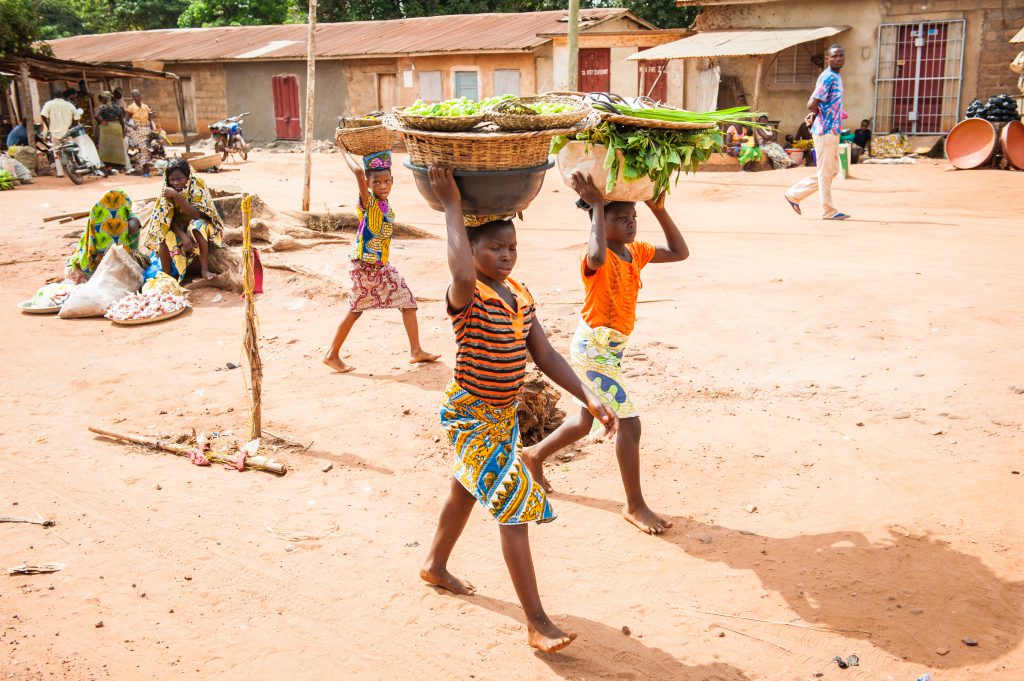
In urban areas, the phenomenon of “small maids” is common. These are young girls who work as home helpers, usually for less than the minimum wage. Other fields also employ children. This is the field of carpentry, crafts. The transport sector is also a large employer of juveniles who usually work in collective taxis. They are commonly called “apprentis Gbaka”. They assist the driver through the search for customers and collecting money from customers.
It is also common to see in the city of Abidjan children who clean car windows, wax shoes or sell various products or objects to ensure their survival or sometimes that of their family. Excluding the agricultural sector, it should be noted that not all of these areas above-mentioned receive much attention from the authorities.
A field survey carried out by ECPAT France, ECPAT Luxembourg, SOS Sexual Violence and researchers revealed that Cote d’Ivoire is no exception when it comes to child prostitution. The origin of such a phenomenon is poverty. The survey thus found that it is mainly survival prostitution which allows minors in school to cover their tuition costs or to obtain good school marks.
Birth Registration
Côte d’Ivoire is facing the challenge of birth registration. Nearly 2.8 million children aged 0-17 are not registered in Côte d’Ivoire. A child who is not declared at birth cannot enjoy many rights. He has no identity and his chances of continuing his education and later getting decent work are seriously mortgaged.
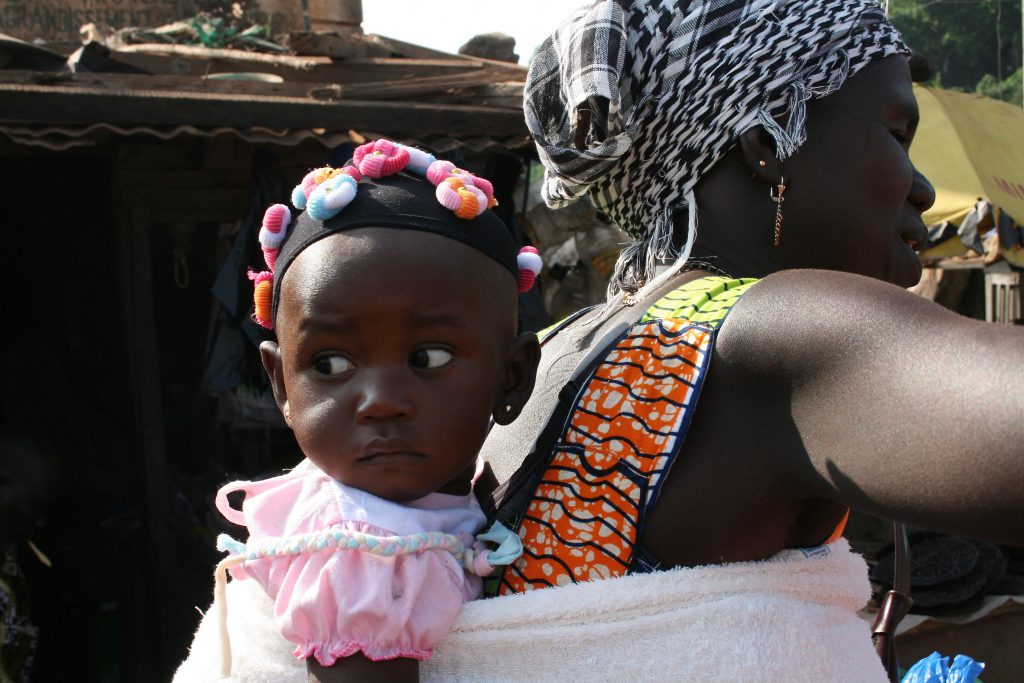
The right to identity of these children faces many obstacles. The ignorance of parents about the importance of birth registration is a big barrier. Parents are not always aware of the importance of the declaration of births and its importance in children’s lives. It is therefore important to carry out awareness campaigns in order to promote the registration of births by parents.
The centres of civil status, the place where births are registered, are often distant. This is often the case for rural populations. This distance is likely to lead to the abandonment of the parents. They are also experiencing delays with respect to the reporting deadline. Since the time limit has passed, payment of an amount is necessary for any declaration beyond the time limit. This amount amounts to 15,000 CFA francs. This is a rather large sum given a population that is largely affected by poverty.
Declaring births would be a way to ensure better chances of success for these children, to protect them against all forms of violence and exploitation and to ensure equal access to justice. It is therefore important to implement the means necessary for the effectiveness of the right to identity of children.
Right to safe drinking water
One in five families does not have access to drinking water in Côte d’Ivoire. Drinking water is a scarce resource in some cities. This is the case of the city of Bouaké in the centre of the country and the surrounding cities. The populations living in these areas are not served with drinking water on an ongoing basis.
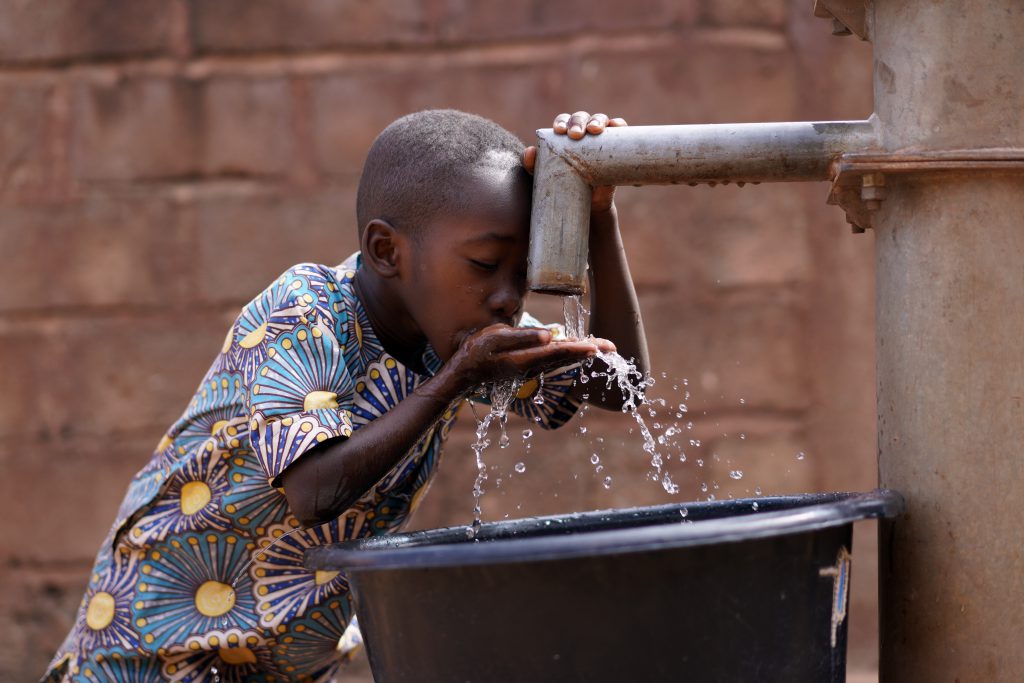
This scarcity of water leads people to resort to other alternatives that include natural sources and wells. These alternatives expose children to diarrhoea and other water-borne diseases. Hygiene is also still very problematic since about half of the schools in Côte d’Ivoire are not equipped with decent toilets. Despite the efforts undertaken by the authorities, the rate of access to drinking water is close to 70%. It is therefore important to redouble efforts to ensure that everyone has consistent access to drinking water. Such efforts could in addition preserve children from many diseases and provide them a healthy environment.
Written by Habib Kouame
Last updated on 16 February 2020
References:
AfroBaromètre . (2018). L’eau est une préoccupation majeure en Côte d’Ivoire.
Ministère de la santé et de l’hygiène publique . (s.d.). Plan National de développement sanitaire 2016-2020.
Ministère du plan et du developpement . (2017). La Situation Des femmes et des enfants . Abidjan.
Rapport Office Français de Protection des Réfugiés et Apatrides (OFPRA). (2017). Les groupes de “Microbes” à Abidjan .
UNICEF. (2012). The impact of social protectino on children . Florence: UNICEF Office of Research.
UNICEF. (2017). Rapport Annuel 2017.
UNICEF. (s.d.). Protection des enfants contre la violence, l’exploitation et les abus.

